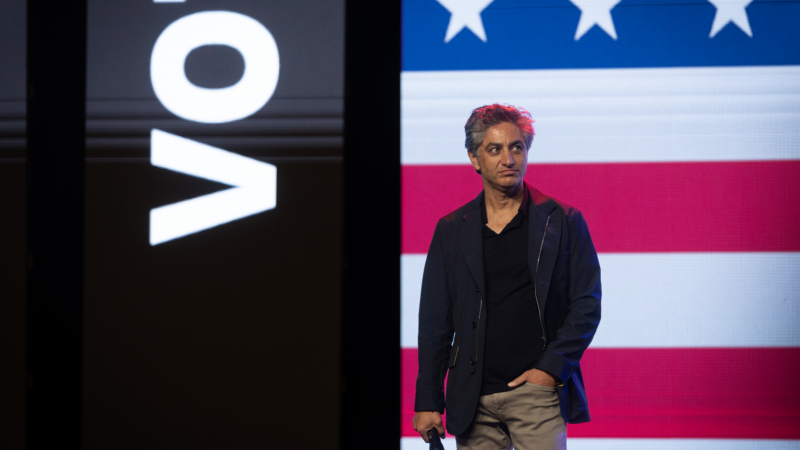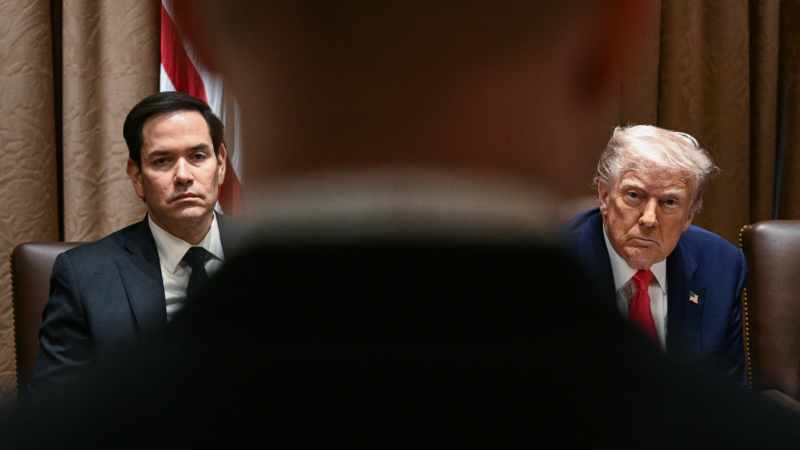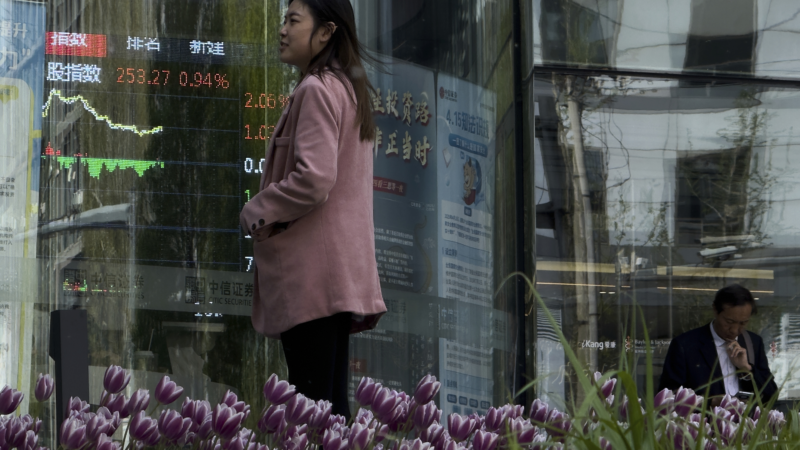Consumer confidence falls the most since 2021 over fears about inflation and tariffs
Consumer confidence fell sharply in February as Americans wrestled with stubborn inflation and the looming threat of more tariffs.
A report from the Conference Board Tuesday showed the sharpest one-month drop in confidence since August 2021. Consumers are particularly nervous about rising prices, with the outlook for inflation a year from now jumping to 6% — double the current rate.
“This increase likely reflected a mix of factors, including sticky inflation but also the recent jump in prices of key household staples like eggs and the expected impact of tariffs,” said Conference Board economist Stephanie Guichard. “There was a sharp increase in the mentions of trade and tariffs, back to a level unseen since 2019.”
President Trump has added a 10% tariff on imports from China, and is threatening additional taxes, including a 25% levy on imports from Canada and Mexico that could take effect next week.
“The tariffs are going forward, on time, on schedule,” Trump told reporters at the White House Monday.
A threatened tax on imported steel and aluminum could put more upward pressure on grocery prices, which have already been climbing.
Egg prices jumped more than 15% in January, as avian flu continues to weigh on the nation’s flock of laying hens. Denny’s restaurants followed Waffle House in adding a surcharge to menu items containing eggs.
Consumers are also feeling less confident about the job market, as the Trump administration moves to cut thousands of jobs in the federal government. The Conference Board’s expectations index, which measures the outlook for jobs, income and business conditions, fell more than 9 points in February to 72.9. Readings below 80 are considered a warning sign for possible recession.
The Conference Board is a non-partisan think tank that conducts regular surveys on the economy. Its confidence index for February echoes a similar report on consumer sentiment from the University of Michigan last week.
The controversial and obscure law being used against immigrant student protestors
The Trump Administration is using an obscure and controversial immigration law from 1952 to try to deport Pro-Palestinian activist Mahmoud Khalil.
Lightning strikes usually kill trees. This one just grows stronger
An author of a recent study about lightning's effect on trees in Panamanian forests says his team has gotten a large, positive response from people, including those who call the trees inspirational.
What ELSE does the president want to make great again? Find out in the quiz!
This week was more than tariffs! There were tortoises, genetically engineered animals, smart vacuums and a lot of other news!
How DOGE may have improperly used Social Security data to push voter fraud narratives
A DOGE staffer working in the Social Security Administration has been pushing questionable claims about noncitizens voting — apparently using data that court records suggest DOGE shouldn't have.
4 takeaways from the week: In a world that craves stability, Trump brings the chaos
President Trump's trade war sent global markets reeling this week. How Trump has handled tariffs shows the farthest thing from stability and predictability. A look at this and three other takeaways.
Beijing slaps 125% tariffs on U.S. goods in latest U.S.-China trade escalation
China signals the latest tariff hike will be its last round of tit-for-tat measures, prompting sharp falls in European shares, as Asian stocks end the day mixed.







